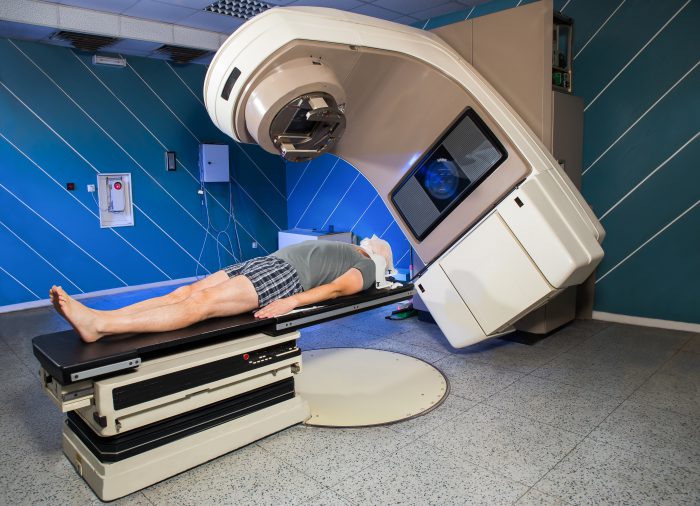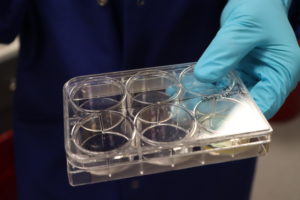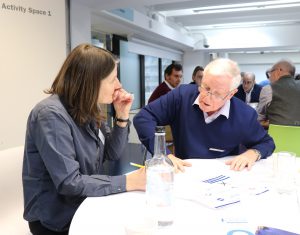

Our Head of Research and Communications, Dr Naomi Elster, outlines what the cancer research community can learn from the research effort against SARS-COV-2

SARS-COV2, the novel coronavirus which first appeared at the end of 2019, brought much of the world as we knew it to a standstill just a few short months later. There was a stark need for science to mobilize, and it did. An Economist story in May reported that COVID-19 publications had been doubling every week since January. The science news site STAT reported in July that a “staggering” 1,200 clinical trials had been designed to find ways to treat and prevent COVID-19. However, that same story carried the harsh but fair headline of “Data show panic and disorganization dominate the study of Covid-19 drugs.” They reported that 1 in 6 of those 1,200 trials were testing a drug already shown not to work, and that many studies were so small that they weren’t likely to get clear results.
Outside of work, I spent some time volunteering, by analyzing and summarizing COVID-19 research papers, and my experience reflects the STAT article. While I did read some incredibly strong, invaluable work, like ENE-COVID and the RECOVERY trial, I did also come across a lot of research which has been rushed and is low quality, or where research teams have wasted time proving something which has already been proved many times over. Scientific results are usually published in peer-reviewed journals, but due to the speed of the pandemic and of science’s response to it, much COVID-19 research appeared as ‘pre-prints.’ These are research papers, not peer-reviewed, which are posted online, for free. 67% of preprints published on one large server before 2017 were subsequently published in journals, having successfully run the gauntlet of peer-review. I would not be surprised if that percentage drops dramatically if that analysis is done again, due to the frantic rush to get COVID-19 papers out.
Overall, it all pointed to a need for coordination. And one example of where coordination worked very well was the RECOVERY trial.
Possibly the most significant breakthrough we have so far is the discovery that the steroid dexamethasone, a drug which costs $5 and is already widely available, cut deaths of COVID-19 patients on ventilators by a third. This breakthrough came out of the RECOVERY trial, on which 15% of all patients hospitalized in the UK were enrolled. Single hospitals would never have had enough patients to deliver results so quickly, but the NHS meant that efforts could be coordinated across 176 hospitals, 12,000 patients, and involve more than 3,000 staff. In response to these findings, a leading US economist was quoted as saying “The Brits are on course to save the world.”

But, as we are all too aware, it’s not just COVID that we need to save the world from. We have some formidable challenges ahead of us in the next couple of years as delays in diagnosis and treatment this year due to the pandemic mean we have an even more urgent need to find better treatments for prostate cancer, in an environment in which there will be much less money available for cancer research. Now more than ever, we need coordination, and to avoid wasted time and wasted money. Collaboration and connecting people with great ideas to avoid duplication is a major part of what we do here at PCR. We’re also proud to be a National Cancer Research Institute partner. Their work to coordinate cancer research has arguably never been more important.
Something else we’ve seen over the past few months is that science has impacts which reach far beyond the walls of the lab. Never before this have I seen science featured so prominently and for so long in the news. One article I read even talked of an “explosion of a new form of journalism,” a more visual, data-driven form with graphs, statistics, and infographics. Politicians talked of “following the science.”
But when you work in a lab, the highly detailed, technical and repetitive nature of it can lead to you losing sight of the impact your work could have. You can probably imagine patients benefitting from your work, but it may feel distant: this could happen in years; not, this might happen tomorrow. You might imagine giving a lecture to members of the general public, or perhaps, if you are very lucky, some media coverage. It’s harder to imagine the emotional impact your work has on patients and families. Few scientists would imagine a politician being briefed on their work. As one volunteer on a COVID-19 vaccine trial wrote “Before the pandemic, many of these doctors and researchers were working in relatively obscure corners of vaccine development or pediatrics, pursuing their work through scientific curiosity or an individual sense of purpose. They never expected to carry the hopes and expectations of billions of people on their shoulders.”
 Connecting scientists to patients at our Meet the Scientists event earlier this year.
Connecting scientists to patients at our Meet the Scientists event earlier this year.
This narrow view of impact is something we see a lot of. We connect scientists to patients to make sure they don’t lose sight of the needs of people who have prostate cancer in their lives. We encourage scientists to think not just of who might directly benefit from their work, but also, who might indirectly benefit, and any wider benefits their work could bring to society. However, many if not most of the answers don’t stretch beyond improved treatments for patients and adding more knowledge to the scientific field. (On that note, the University of Glasgow runs an excellent course on Futurelearn many researchers may find useful).
Positive impact for people with prostate cancer, and their loved ones, is what drives us. Nothing is more important than that. But we should be proud of the wider benefits of what we are working towards. For example, prostate cancer costs patients and their families a huge amount every year, and cancer costs wider society nearly four times that in lost productivity, care costs, and time out of work. One of the central principles of our Research Strategy is reducing the cost of treatments. If we can lessen the overall burden of cancer, we will all benefit.
That we already have a treatment, and the speed of progress towards a vaccine, just months after a completely new infection appeared and started its spread across the world, is an incredible testament to what science can do if we get behind it. This is something which should give us a real sense of hope, determination, and purpose. And if we can keep this drive going, and apply it to other areas of science, we could make unprecedented progress in other areas too.
We are in a very difficult fundraising environment and many medical research charities are at risk, but I have never been prouder to work alongside my colleagues and with our funded scientists than I am now. Their resilience and creativity has kept us in a strong position, meaning we have been able to minimize the impact of this crisis on our current activities. We were fortunate enough to not furlough any of our staff and instead redeployed some of our team to focus on areas of fundraising less affected by the crisis. We are are also using this time to up skill and build our internal capacity – including work to maintain a deep and up-to-date understanding of patient needs – which will help us survive this difficult period and bounce back quickly and strongly when it is over. We have been able to support our scientists so that most of them could safely keep working throughout lockdown and continue to honor all of our current commitments to researchers and the patients their work will benefit.
“We’ve faced down one challenge: the lockdown, and the first phase of the pandemic. Now, it’s time to take on the next: the increased need for our work at a time that charities will find very difficult. But we know we can do it, and the rapid progress made against COVID-19 shows us what we should be trying to achieve for prostate cancer.